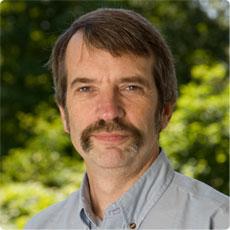
A new study says one of the best ways to curb greenhouse gas emissions is to eat less meat. In fact, the study says meat consumption in the developed should be cut by 50 percent per person by 2050.
Meat production and consumption are expected to soar by 2050. That's because the global population is projected to grow from the current seven billion to nine billion. But also, the diets of people in many developing countries are changing. Countries with emerging economies are seeing a sharp rise in protein consumption, especially red meat.
Dr. Eric Davidson said changing how people eat can have a dramatic effect on greenhouse gas emissions.
"We're not talking about everybody suddenly needing to become a vegetarian. Rather it's kind of reversing the supersize trend and being more mindful of the impacts of the amount of meat and the types of meat, both for the environment and our own health," he said.
Davidson is the president and senior scientist at the Woods Hole Research Center in Massachusetts.
Meat, manure and gas
"If there is a growing demand for meat, which of course there is, that is going to end up requiring use of more nitrogen fertilizer and production of more livestock manure, both of which end up resulting in unintentional releases of various forms of nitrogen to the environment, including nitrates to groundwater and surface water and also greenhouse gases such as nitrous oxide to the atmosphere," he said.

Davidson looked for ways to ease the effects of climate change that would support an aggressive strategy laid out by the Intergovernmental Panel on Climate Change. In particular, the effects of nitrous oxide, described as the third biggest contributor to climate change after carbon dioxide and methane.
But while nitrous oxide ranks number three in greenhouse gases, it is considered the most potent. It's much better at absorbing infrared radiation. In other words, the sun's energy passes through the Earth's atmosphere, heats things up and is then released through infrared radiation. But that radiation then hits the greenhouse gases in the atmosphere and goes no further.
Davidson has a simple analogy.
"It's sort of the same idea as a parked car. The energy goes through the windshield of a car pretty easily. It's absorbed on the car seat. Gets the car seat hot. Re-radiates out and it cannot escape the windshield on the way out. This infrared radiation cannot escape the windshield and so the inside of the car heats up. The physics is pretty well understood for climate change. I think we'd probably have better acceptance of it if we called it the parked car effect instead of the greenhouse gas effect," he said.
And nitrous oxide stays in the atmosphere a very long time before breaking down. It can take over 100 years to break down one molecule of the gas. The main sources of nitrous oxide are synthetic nitrogen fertilizers and storage and use of livestock manure.
Start now
Davidson says farmers should be given incentives to use fertilizers and manure more judiciously.
"If we want to meet the most ambitious and optimistic goal of these scenarios of bringing harmful climate change under control, we need to improve the efficiency with which we use fertilizers in agriculture. We need to improve the efficiency of the management of manure. And we also need to consider changes in dietary patterns. And that means hopefully better diets in the developing world and better balanced diets in the developed world," he said.
Even if it were possible to turn off all harmful greenhouse gas emissions today, he said climate change would continue.
"That doesn't mean that we shouldn't start the mitigation now because the sooner we start it the more options our children and grandchildren will have in terms of being able to feed themselves and have prosperous lifestyles without environmental degradation," he said.
Davidson's findings appear in IOP Publishing's Environmental Research Letters.
nitrous oxide: 一氧化二氮(俗稱笑氣)
Glimpsing the future on climate change
Greenhouse gas speeded ice age melting
(來源:VOA 編輯:旭燕)
